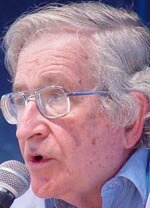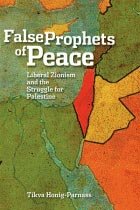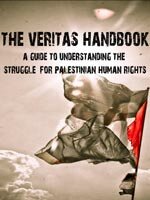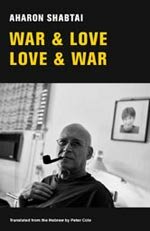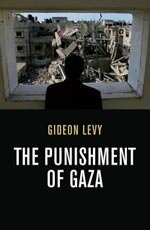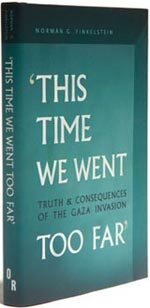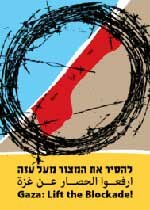“Israel must understand that to achieve quiet and security, real peace is needed. It’s true, the armed struggle isn’t the only solution, but if there’s no other solution, what choice do we have? What do you want, to build more and more settlements and for me to kiss your hand? If there is a diplomatic solution, there will be no need for violence.”
“Therefore I, a 95 year old Sabra (native born Israeli Jew), who has plowed its fields, planted trees, built a house and fathered sons… and also shed his blood in the battle for the founding of the State of Israel, [d]eclare herewith that I renounce my belief in the Zionism which has failed, that I shall not be loyal to the Jewish fascist state and its mad visions…”
IOA Editor: Avnery’s view of history is founded largely on his own imagination: Post-1948 Israel was a natural outcome of pre-statehood, and post-1967 Israel was a continuation of earlier years. But it fits with Avnery’s retrospective view of his life in Palestine/Israel. The key question conveniently left out by Avnery, and by the Dalia youth of 1947, was “what was to become of the Palestinian natives,” once the dancing stops and the fighting begins. However, the article reflects the internal tension in certain segments of Zionism, and this is why it is of interest.
A ministerial panel approved Sunday a bill to ban funding by the state of groups that mark the Palestinian Nakba, which commemorates Israel’s independence as a day of mourning… The bill is the revised version of a proposed law scrapped two months ago – after opposition from several ministers – that would have forbidden Israeli Arabs from commemorating the Nakba, or “catastrophe,” on Independence Day.
The village of Imwas (عِمواس) was one of three villages in the Latroun area (Palestine’s District of al-Ramla) that were occupied by the IDF in June 1967, during Israel’s military conquest of the West Bank in the 6-Day War. Subsequently, the inhabitants of the villages were expelled, and their homes leveled to the ground. Where Imwas stood until 1967, Israel (via the Jewish National Fund) planted the Valley of Springs in Canada Park, a recreation forest which serves the purpose of re-writing the history of Palestine by eradicating its Palestinian past. The two other villages were Bayt Nuba (بيت نوبا) and Yalu (الو). Not one of the several thousands of people who lived there until 1967, and very few traces of their physical presence, remain today.
Information on these three Palestinian villages, and on hundreds of others destroyed by Israel since 1948, can be found at www.PalestineRemembered.com.
[T]orture has been routine practice from the early days of the conquest of the national territory, and then beyond… Small wonder that the President advises us to look forward, not backward – a convenient doctrine for those who hold the clubs. Those who are beaten by them tend to see the world differently, much to our annoyance.
There was a revealing interlude in mid-September 2007, when the former Federal Reserve Chair, Alan Greenspan, was quoted in The Washington Post of Sept.17, 2007, as saying that “the removal of Saddam Hussein had been ‘essential’ to secure world oil supplies….” Greenspan’s statement, that “the prime motive for the war in Iraq was oil,” apparently shocked the White House, leading an anonymous White House official to explain, “well, unfortunately, we can’t talk about oil.” The former Federal Reserve Chair was already on record as conceding that he was ‘saddened that it was “politically inconvenient to acknowledge what everyone knows: the Iraq war is largely about oil.
Hadash Chairman MK Mohammed Barakeh: “Passing our heritage from one generation to the next is essential for our steadfastness and survival in our homeland. Our survival is not open to interpretation or negotiation, and is our formative feature as a community that narrowly escaped the threat of expulsion and remained in its country.”
“Yad Vashem talks about the Holocaust survivors’ arrival in Israel and about creating a refuge here for the world’s Jews. I said there were people who lived on this land and mentioned that there are other traumas that provide other nations with motivation,” Shapira said.
On Friday evening, television news viewers witnessed the ultimate reality show – the murder of a human being on camera. The site of the killing was next to the West Bank village of Bil’in, 80 kilometers south of the ancient city of Jezreel, where a murder was committed under similar circumstances some 2,800 years ago. Bil’in is located 10 kilometers south of the village of Qibya, itself a notorious locale in Israel’s history for the 1953 IDF raid in which 69 Palestinian civilians, some of them children, were killed by troops commanded by a young Ariel Sharon.
Professor Shlomo Sand, the Tel Aviv University history professor and author of a controversial book on the genetic origins of the Jews, this week received a top critics prize from French journalists.
The film is applauded for its courage in confronting a complicity that has long been part of the historical record. This confrontation ends up leading to redemption much more than to condemnation. And hardly anyone suggests that Israel’s current military operations should also be bravely examined. I suppose that we will have to wait for another award-winning film, a quarter-century from now, to do that.
On the evening of October 29, 1956, Israel, allied with France and Great Britain, attacked Egypt, and the Sinai Campaign began. The operation lasted for about 100 hours and cost the lives of over 170 Israeli soldiers. Over the years, the widespread perception has been that Israel wanted this war, but to this day there is no consensus among scholars about the reasons why.
The PR war being waged by Israel over coverage of its invasion of Gaza is a critical part of maintaining the US public, if not the US government, in a state of maximal ignorance and above all, indifference, to the meaning of what is taking place in Gaza.
Tanya Reinhart, linguist, writer and political activist: born Kyriat Haim, Palestine 23 July 1943; married 1997 Aharon Shabtai; died New York 17 March 2007.
Tanya Reinhart was a distinguished academic linguist and a political commentator and activist. She was known internationally as an ardent critic of Israel’s policies and of the Zionist ideology. Reinhart was married to the Israeli poet and translator Aharon Shabtai.
May 11, Sabra-Shatila camp
There is a plot of land of perhaps less than a half acre, surrounded by a wall with a large iron gate, where the victims of the 1982 massacre are buried. The land is mostly flat and covered by grass, with a few mounds here and there, the locations of mass graves which we can see through the gate’s vertical bars. On the outside wall there are large, slightly fading, poster photos of those found dead after the rampage of Phalangist militiamen that were sent in by the Israeli army that had surrounded the camp in 1982. The gate-keeper is an old Palestinian, with half of his teeth missing, sitting under the shade of the tree near the gate and selling flowers. We ask him to open the gate and let us enter the ground. The old man says that if the visitors are American he will not let them enter. “Yes, the visitors are American, but they are good Americans,” I explain. Then pointing to Noam a few steps away, I say that he, in particular, is the most indefatigable defender of Palestinian rights in America. The old man stares at me with a skeptical look for a few seconds, as if to gauge the truth of what I just said, then gets up and opens the gate.




















